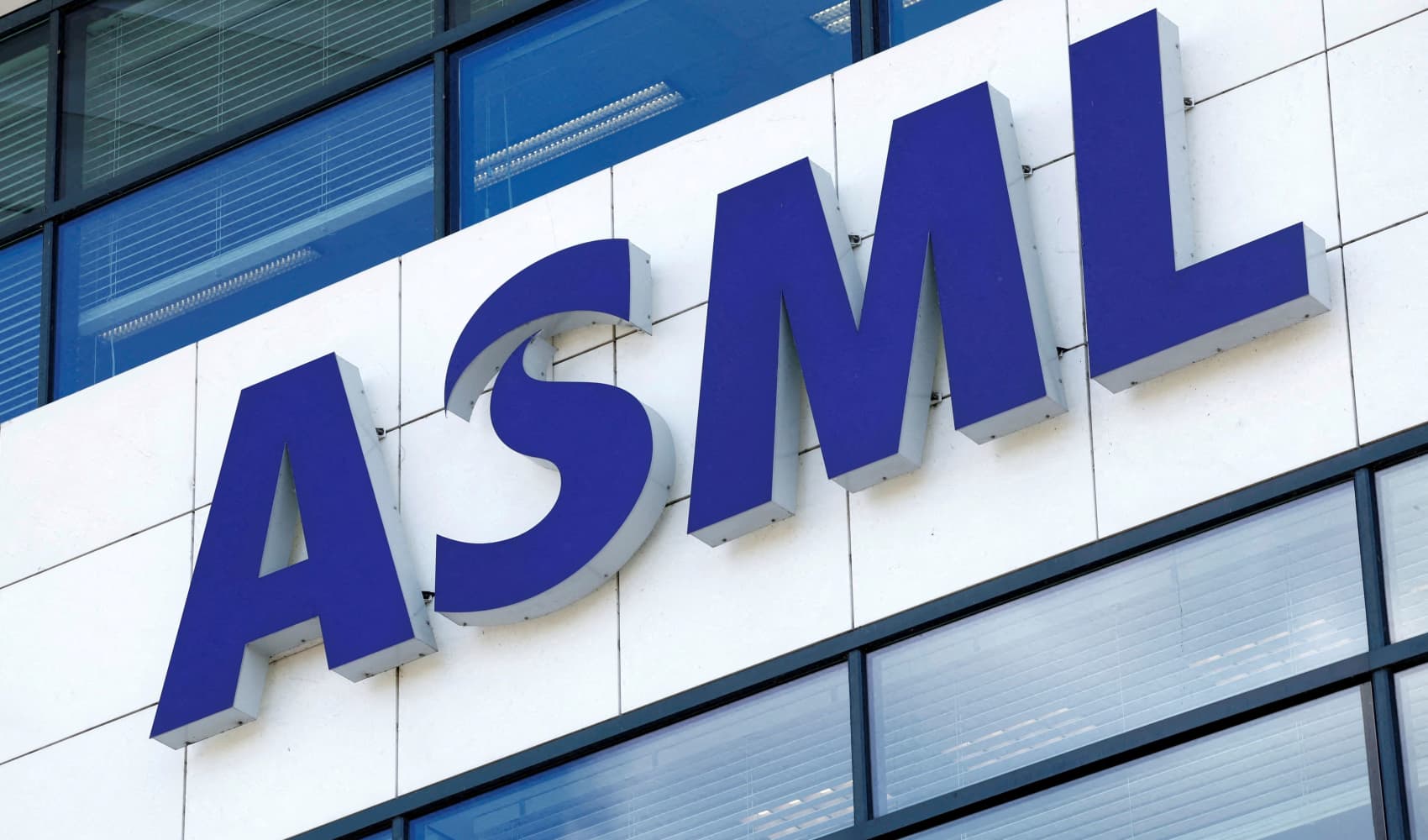
This is CNBC's live blog covering Asia-Pacific markets.
Markets in the Asia-Pacific traded higher on Friday as technology stocks continued to see renewed interest and led gains on Wall Street, with some shaking off concerns of a further banking crisis.
Investors also looked ahead to the U.S. personal consumption expenditure price index, the Federal Reserve's preferred measure of inflation, which is slated for release later in the day.
In Japan, the Nikkei 225 rose 0.93% to 28,041.48 and the Topix rose 1.02% to 2,003.5 as Tokyo's inflation print continued to show lower levels from its recent peak of 4.3% seen in December. The S&P/ASX 200 in Australia rose 0.78% to close at 7,177.8.
Get New England news, weather forecasts and entertainment stories to your inbox. Sign up for NECN newsletters.
South Korea's Kospi also rose 0.97% to end its session at 2,476.86 while the Kosdaq fell 0.35% to 847.52.
The Hang Seng index in Hong Kong pared earlier gains and last traded 0.65% higher in its final hour of trade. The Hang Seng Tech index also rose 0.92%.
In mainland China, the Shenzhen Component gained 0.64% and the Shanghai Composite inched up 0.36%
Money Report
Overnight in the U.S., weekly jobless claims rose by 7,000 to 198,000, adding to hopes that the Federal Reserve could slow down its tightening campaign on a cooling labor market.
The S&P 500 added 0.57%, and touched its highest level since March 7 mid-session. The Nasdaq Composite also rose and marked an increase of more than 4% for the month and the Dow Jones Industrial Average added 0.43%.
— CNBC's Alex Harring, Brian Evans contributed to this report
China's March official manufacturing PMI reading beats expectations
China's official manufacturing purchasing managers index for March was 51.9, data from the National Bureau of Statistics showed.
That's slightly above expectations of 51.5 by analysts polled by Reuters, but lower than 52.6 seen in February.
Most components eased from February, while output, new orders and exports remained in expansion territory, government data showed.
Non-manufacturing PMI meanwhile was 58.2, higher than February's reading of 56.3 alongside notable rises in activity in the construction sector.
— Jihye Lee
Hong Kong stocks higher, led by tech, consumer cyclicals and basic materials
Consumer cyclicals and basic materials led gains in the Hang Seng index, which rose more than 1.85% in the morning session.
By percentage change, JD.com gained the most and traded 6.5% higher as technology sector in the index gained about 1.6%.
Consumer cyclicals rose 1.7% and basic materials rose 1.5% — clothing manufacturer and Nike supplier Shenzhou International Group Holdings rose 5.82%, China Life Insurance rose 5.8%, and Haidilao rose 4.74%.
Technology firms were higher with Alibaba up nearly 4% and Meituan up 2%.
— Jihye Lee
Japan imposes restrictions on semiconductor equipment
Japan's trade ministry said Friday it will impose export controls on equipment used in chip manufacturing.
While it did not mention China as a target of these measures, the move falls in line with the U.S. push in October to restrict China's ability to produce high-tech chips as concerns rise that Beijing plans to use the material for military purposes.
Separately, the Netherlands has pressed ahead with export restrictions on advanced semiconductor manufacturing equipment following political pressure from the U.S.
Japan said in the release that the measures were taken to "fulfill its responsibility as a technological nation to contribute to international peace and stability."
Shares of Tokyo Electron fell sharply after the announcement and traded 1.8% lower, while Nikon Corp erased some of its earlier gains and traded slightly above the flatline.
— Jihye Lee
SoftBank rises after company says to book $2.7 billion gain for Alibaba share transfer
Shares of SoftBank Group rose 3.36% in early trade after the company said it would recognize a 359.6 billion yen ($2.7 billion) gain on the sale of an Alibaba stake to SoftBank Group's wholly owned subsidiary, Shiodome Project 17 GK.
SoftBank's announcement comes after Alibaba said it will split into six entities.
The move is aimed to "improve management efficiency through the centralized management of these shares, in light of the potential to use them for financing in the future," SoftBank said in a statement.
— Jihye Lee
Rio Tinto rises on Peru copper project joint venture announcement
Australia-listed shares of miner Rio Tinto rose 2% after the company announced to form a joint venture with Canada's First Quantum Minerals to develop the La Granja copper project in Peru.
Rio had acquired the La Granja copper project in Peru in 2006 from the local government.
First Quantum will acquire a 55% stake in the project for $105 million and commit to investing up to $546 million in the joint venture, the company said.
— Jihye Lee
Consumer price index in Tokyo rises 3.2%, continues cooling from December
The consumer price index in Tokyo, excluding fresh food rose 3.2% in March, continuing to see a slowed pace of inflation since its recent peak of 4.3% seen in December, government data showed on Friday.
The reading was broadly higher than expectations to see the reading at 3.1% and lower than the previous print of 3.3% in February. Tokyo's overall inflation was at 3.3%
The Japanese yen weakened 0.23% to 132.95 against the greenback.
The nationwide jobs-to-applications ratio meanwhile was broadly in line with expectations at 1.34, and its unemployment rate was higher than expectations at 2.6%.
— Jihye Lee
The Federal Reserve’s favorite inflation measure is due Friday
The February reading of the personal consumption expenditures price index will be released at 8:30 a.m. ET Friday.
Economists predict the core PCE gained 0.4% monthly, and that it added 4.7% from 12 months earlier, according to Dow Jones.
Though the consumer price index is the metric that comes to mind when most people think of inflation, the PCE is the central bank's preferred gauge for prices. St. Louis Fed President Jim Bullard points to three key reasons why: First, the expenditure weights in the PCE adjust as consumers substitute some of their goods and services. Second, the PCE has more comprehensive coverage of goods and services, compared to the CPI. Finally, historical PCE data can be revised, he said.
-Darla Mercado
Biden calls for range of banking reforms following SVB, Signature Bank failures
President Joe Biden urged federal regulators Thursday to take up a set of reforms to safeguard the banking system, following the failures of Silicon Valley Bank and Signature Bank.
The administration wants regulators to take a range of steps to reinstate safeguards for banks with assets between $100 billion and $250 billion and "strengthen oversight and regulation of larger banks so that we are not in this position again," the White House said in a fact sheet Thursday.
All of the reforms can be accomplished under existing law, Biden said.
For more, read the full story here.
— Tanaya Macheel
Oil prices rise more than 1%
Oil prices were up more than 1% amid concerns over shrinking U.S. stockpiles and a halt to exports from a region in Iraq.
Brent crude futures rose $1.05 cents, or 1.3%, to $79.33 a barrel. West Texas Intermediate crude rose $1.36 cents, or 1.9%, to $74.33.
Iraq had to halt around 450,000 barrels per day of crude exports, which amounts to around half of one percent of the world's supply from the Kurdistan region, according to Reuters.
— Alex Harring
Wall Street's view of market volatility falls back to March low
Investors are adding to views that the worst of market turmoil is behind them.
The Cboe Volatility Index, Wall Street's preferred measure of fear in equity markets, declined back down to 19 late Wednesday. The index started March at 19 and reached as high as 30 in the middle of the month.
The increasingly optimistic view is in line with the broader trend of markets this week, with futures signaling Thursday morning that Wall Street is on pace for another positive open.
— Brian Evans






